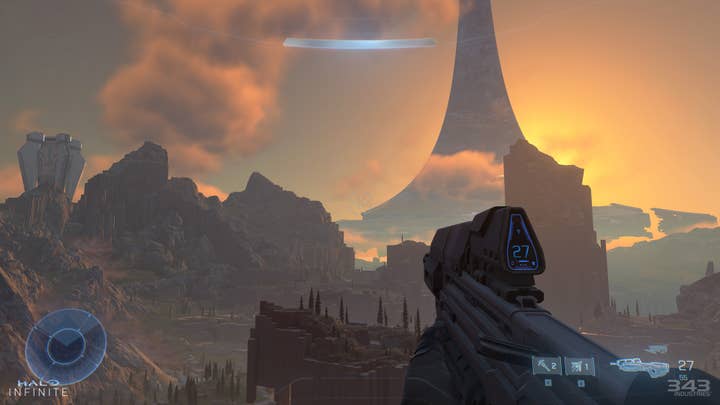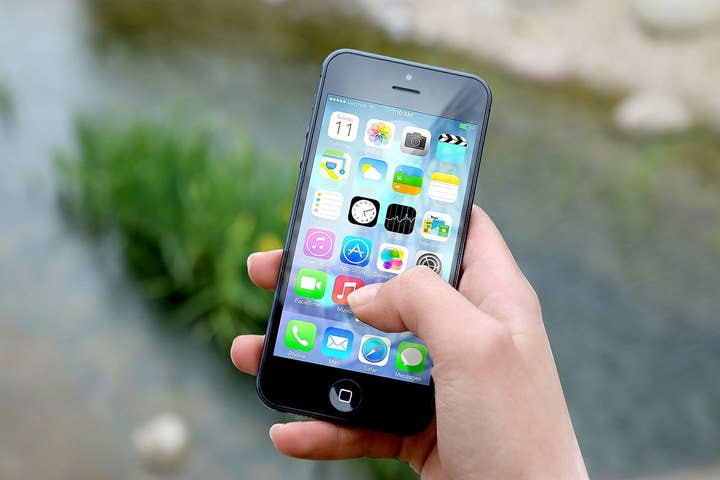Xbox Series X|S is the beginning of the end for console generations | Console analysis
Microsoft's new devices may not be essential purchases today, but they lay the groundwork for the future of the industry
Traditionally, the start of a new console generation is a hard reset.
You bring home your expensive new game box with, at most, a handful of launch titles. Your previous console and all its games begin to collect dust -- assuming you haven't already traded them in. Out with the old, in with the new.
Compare that to when you upgrade your phone. Everything is backed up to your computer or the cloud, you swap SIM cards, go through the usual setup process, download that backup -- and pick up exactly where you left off. Your photos, music, podcasts and apps are all present. Yes, there are a couple of shiny new features to get excited about, but your new phone has essentially replicated your old one rather than completely replaced it.
Setting up my Xbox Series X felt exactly the same -- especially using the Xbox smartphone app to do the set-up while updates were downloading. As soon as that's done, it was like I was playing my Xbox One X. Same settings, same library of titles, same everything. Even the UI is the same -- although that's mostly because Microsoft, like mobile platform holders, iterates on its interface separate from hardware releases and did so just ahead of launch.
The 'next' of this next-gen machine is far more subtle and offers a sense of continuity never experienced with any previous console
So, thanks to cloud saves, I could just dive into the game I was playing on my previous Xbox the day, week, or even year before and continue where I left off. Just with a bigger box and a slightly tweaked controller.
The 'next' of this next-gen machine is far more subtle and offers a sense of continuity never experienced with any previous console.
I can already hear two inevitably angry Twitter-style responses: firstly, 'Well, PS5 has backwards compatibility too' and, perhaps more obviously, 'So if nothing's new, what's the point?'
Yes, PlayStation 5 has backwards compatibility, but Microsoft has put both more focus and effort into it. Xbox Series X|S can play four generations of Xbox games, thanks to backwards compatibility work started with the Xbox One -- and players can not only enjoy their older games but see some noticeable enhancements. Even games not optimised for Xbox Series X -- including Assassin's Creed Origins, Perfect Dark HD, and my beloved Assassin's Creed Unity -- all run more smoothly and crisply than I ever remember on the older machine.
By comparison, Sony has abandoned PlayStations 1 through 3, even though the latter could emulate its two forebears. And this recent hands-on from Push Square suggests that some PS4 titles -- even this year's blockbuster The Last of Us: Part 2 -- have minimal improvements on PS5.
So, more importantly, what's the point in a new machine that doesn't really offer anything new?
It doesn't help that Microsoft has the weaker launch. There are no first-party launch titles beyond spruced up Xbox One games thanks to Halo's delay, and even exclusives like The Medium are slipping. There's a wave of games arriving this week, such as star title Assassin's Creed Valhalla, but there's no 'wow' factor like there is with the PlayStation 5 (hello, Miles/Astro/Demon's Souls, depending on your preference).

Games that are optimised for Xbox Series X look pretty enough, but the graphical leap between generations is becoming more and more incremental. I personally find it hard to get excited about (admittedly stunning) ray-traced puddles and other lighting wizardry in Dirt 5 -- and I doubt I'm in the minority.
According to Statista, only a third of households in the US -- by far, Xbox's biggest market -- had 4K UHD TVs in 2018. Both Microsoft and Sony can talk teraflops, 8K, 120 frames per second and other graphical/technical gubbins all they like, but if people don't have the right screens, it's not the driving factor. It's a nice-to-have not a must-have, future proofing for later upgrades. Games drive console sales.
In a way, as Chris observed on our latest podcast, now is not the moment for Xbox Series X. That will come when Halo, Fable, Everwild, Forza Motorsport, Starfield and (please) a new Perfect Dark arrive in the next year or so. Yesterday just marked the arrival of the machine we need for those. It's the beginning, the set-up. Just because your tree is up doesn't make it Christmas.
Whoever purchases a Series X today is buying a promise -- one that Microsoft may not deliver on for years.
Microsoft is, of course, making the best of a bad situation. It almost certainly didn't plan to launch a next-gen console without a star title, but the impact of COVID-19 -- perhaps combined with Craig the Brute memes and, according to Phil Spencer, some poor communications planning -- means Halo Infinite isn't out until next year. Despite having three years of development, Forza Motorsport isn't ready yet either for some reason, nor are any of the titles at the multitude of studios Microsoft has bought over the years (although many, like Obsidian or Double Fine, have had previous projects to finish first).
Big games are essential to selling a console at launch -- but it's important to remember that, as has been said many times, Xbox is not just selling Xboxes any more. It's selling an ecosystem. A wide variety of games to drive console sales.
Cast your minds back to each digital presentation from Microsoft this summer. These were as much about advertising Game Pass and the titles coming to it as they were encouraging people to "get hyped" about the new machine. Even the acquisition of Bethesda came with the underlying message that Xbox is the machine to get if you want Fallout, Elder Scrolls et al. Through its subscription service, Xbox is no longer a single platform: it's consoles old and new, it's PC, and it's even mobile now, thanks to the steady rollout of xCloud.
Series X doesn't just mark the start of a new generation, it's the latest entry point into that Xbox ecosystem. Again, look back at previous console launches; even if day one line-ups have a couple of dozen new games, most people can only afford two or three -- yet I managed to fill my hard drive on day one with Game Pass titles and other previous purchases, spoilt for choice on what to indulge in using my new console.
It speaks to the strategy Microsoft has been following for some time, as well as an ongoing shift in the industry. Xbox Series X -- and, to a similar extent, PlayStation 5 -- have to have one foot in the past, because so many people are still playing there. Just look at the biggest games of the past couple of years: Fortnite, PUBG, GTA Online -- these are games that can't afford the hard reset that always came with console transitions. They need continuity. Even games like Rainbow Six Siege are getting free upgrades instead of a sequel. Games, like so many other forms of entertainment, are becoming service-driven -- and hardware barriers are not conducive to that.

And that's the point Xbox Series X really drove home for me: video games have been hamstrung by technology and format in a way no other form of entertainment has. We're still able to read books from 100 years ago, watch DVDs that are decades old on modern players, listen to CDs from even further back -- and yet after six or seven years, a new device is required to play games. Even though generations are longer than they used to be, that's too narrow a window, especially if each cut-off makes previous games inaccessible.
Microsoft wants people to upgrade when they feel like it, just as they would their phone, rather than when the industry decides it's time for new boxes
As bad as the name is, Microsoft was onto something by calling the Xbox One an "all-in-one entertainment system" -- it handled games, music CDs, DVDs and Blu-ray (4K UHD Blu-ray on One X), plus all those film, TV, and music streaming services we're spending time with. The PS4 did this too, as do the next-gen machines (although neither of Sony's current or next-gen machines play CDs).
The point is we're far past games consoles solely being gaming devices, so do generations even make sense any more? There's a reason Microsoft says the brand of its new generation is just "Xbox" -- like "iPhone," that's how the mainstream refer to it. They don't distinguish between having the iPhone 6, 7 or X. It doesn't matter. It's the iPhone.
It's a hell of a gamble, with Microsoft pushing for a future where you don't need to drop $500 every five to seven years to keep up with the hobby -- something it's already offering an alternative to with its smartphone-style Xbox All Access monthly payment plan. Microsoft wants people to upgrade whenever they feel like it, just as they would their phone, rather than when the industry decides it's time for new boxes. And when they do, all their games and previous content will be waiting for them.
That's not an easy world to build. Analysts predict PS5 will outsell Xbox Series X|S, so we're not on the cusp of a sudden shift towards Microsoft. And Sony has a stellar 2021 ahead with Horizon Forbidden West, Ratchet & Clank, and Gran Turismo, while it's unlikely we'll be enjoying the new Fable or Forza before 2022.
And Microsoft certainly isn't making a strong case (yet) for the Xbox Series X. We're still waiting for Halo, for Forza, for all those future exclusives from the plethora of studios the platform holder purchased. Whoever purchases a Series X today is buying a promise -- one that Microsoft may not deliver on for years.
But with PlayStation owners facing hurdles with save transfers for massive blockbusters like Spider-Man -- a game that's only just turned two years old, mind you -- it's hard not to appreciate the easy accessibility Microsoft offers. The reason I have stuck with iPhone for so many years rather than switching to Android is that seamless transition, and I can't imagine I'm alone in that. There's no learning curve associated with new hardware, so you can just focus on using it.
Xbox Series X and by extension Series S has no learning curve. You just play games. Yes, it's easy to feel a little shortchanged at the lack of dramatically new experiences on day one -- but the ease of continuing unfinished titles and knowing you don't need to frequently purchase upcoming releases to expand what you can enjoy on your new console paints a picture of a world where we don't have to start over every few years.
The time of hard resets is coming to an end. In with the new, standing side-by-side with the old.

